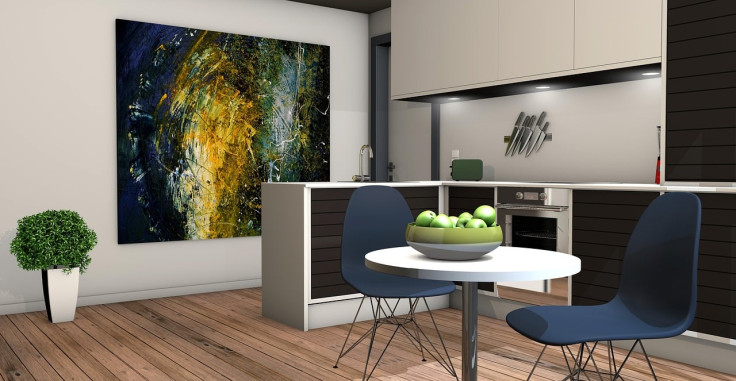Trauma-Informed Design And Architecture Promote Economic Growth, Inclusion

Design and architecture are significant industries that should be elevated through trauma-informed perspectives. Talented professionals in these industries create properties based on visual and technical aspects. The way a space looks and the subtle principles used to design it are deeply impactful on a person spending time there.
Even if you lack knowledge of industry-specific techniques, simple changes can transform the feeling a space gives you. For example, the fluorescent lights and white walls in a school rarely make a person feel cozy. The absence of color along with the intensity of unnatural light induces negative feelings. In contrast, therapy offices with shades of brown and natural light invoke a feeling of calm and stimulate serotonin.
Studies have shown that the design of cities and buildings affects our moods and mental health. In some cases, living in urban areas–which often limit access to greenery and natural environments–drastically increases our likelihood of mental health struggles like anxiety and depression.
As humans flock to urban areas, these findings should affect the way designers, architects, and developers approach projects. This is specifically true for developments like homeless shelters and medical facilities, where design is critical for preventing retraumatizing survivors and improving economic and health outcomes. The Brown Group LA, a trauma-informed design and architecture consultancy founded by Tanisha Brown is committed to spurring this change.
Tanisha A. Brown has always been interested in psychology, DEI, and cultural studies. Her experiences as a Black woman living in Los Angeles have further shaped what she believes the world needs from physical structures. She has created Attract, a magazine for all types of women, that allows her to promote the stories of the underrepresented. Tanisha has a diverse background in marketing and has founded The Brown Group LA to raise awareness about the importance of creating spaces with purpose through trauma-informed design.
All types of people seek a sense of community and belonging through social settings and the dwellings that encourage these activities. In a multicultural world, creating buildings, homes, and offices that enhance happiness and collaboration is a major concern. Designing with these outcomes in mind improves well-being and increases productivity. However, the real estate market may be neglecting to fully integrate these innovative practices. Tanisha hopes to conduct case studies on the impacts of trauma-informed design to shatter misconceptions and promote widespread adoption.
The purpose of trauma-informed design is to promote safety, well-being, and healing. Some of the principles of this practice include creating safety, trustworthiness, transparency, and peer support. Creating spaces that are designed in a trauma-informed way can be as simple as reducing physical barriers and utilizing symmetry, cool-toned colors, and plants.
Trauma-informed design is highly important for society as Adverse Childhood Experiences or childhood trauma have a direct link to a life of victimization, chronic health conditions, and mental health problems. If our spaces are capable of soothing all individuals–particularly trauma survivors–shouldn't the market be responsible for instigating these practices? Tanisha Brown is a strong advocate for trauma-informed design as it can create social impact and improve the efficiency of public resource programs and private entities.
"I founded The Brown Group LA to provide transformative property development and design services," says Tanisha Brown. "Trauma-informed design is a simple concept to understand, yet it is continuously overlooked in some of society's most important settings. Hospitals, schools, shelters, and even our own homes can benefit from these practices. I am striving to impact the public and supportive housing sector with this approach. The Brown Group LA has cultivated partnerships and is seeking funding to renovate these properties and acquire others that can be utilized for similar demographics. Design and architecture deeply influence how we feel about ourselves, our world, and other people. That is why I say that trauma-informed design has the power to improve and save lives."
Despite Tanisha's expertise in trauma-informed design and the real estate industry, she has yet to create her desired impact. Securing capital is a hurdle as venture capital notoriously underfunds female and Black-owned companies. However, Tanisha still dedicates much of her time to forging partnerships and looking for investors. Her passion for trauma-informed design is the fuel behind her tenacious entrepreneurial spirit and that will never be inhibited by adversity.
If you're interested in supporting The Brown Group LA's mission to renovate and build trauma-informed spaces for underserved communities, visit the company website for more information. Your support is fundamental to alleviating the debilitating effects of trauma and facilitating the building of human-centered spaces.
© Copyright IBTimes 2024. All rights reserved.





















